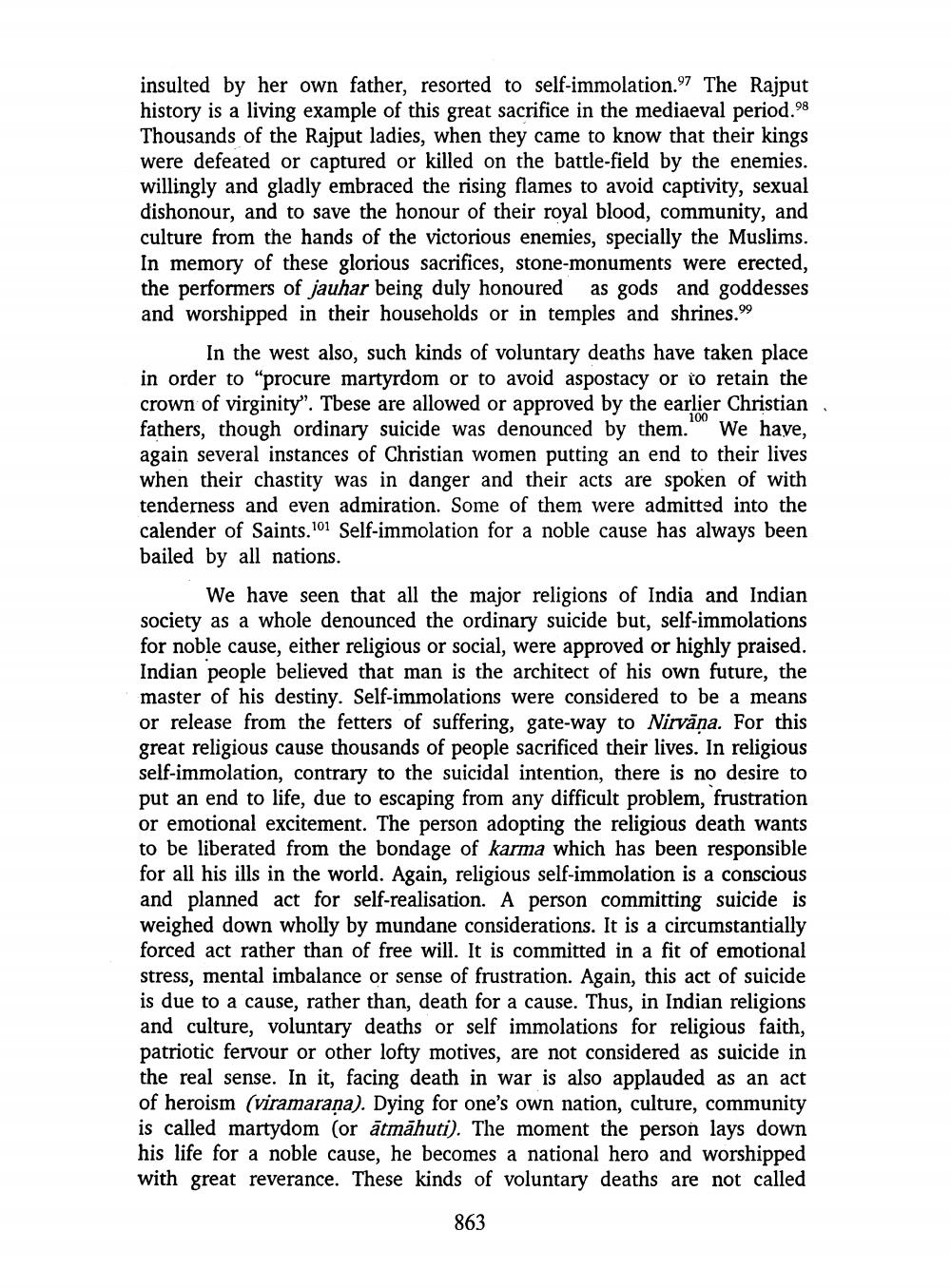________________
insulted by her own father, resorted to self-immolation. The Rajput history is a living example of this great sacrifice in the mediaeval period. 98 Thousands of the Rajput ladies, when they came to know that their kings were defeated or captured or killed on the battle-field by the enemies. willingly and gladly embraced the rising flames to avoid captivity, sexual dishonour, and to save the honour of their royal blood, community, and culture from the hands of the victorious enemies, specially the Muslims. In memory of these glorious sacrifices, stone-monuments were erected, the performers of jauhar being duly honoured as gods and goddesses and worshipped in their households or in temples and shrines.99
In the west also, such kinds of voluntary deaths have taken place in order to "procure martyrdom or to avoid aspostacy or to retain the crown of virginity". Tbese are allowed or approved by the earlier Christian. fathers, though ordinary suicide was denounced by them. We have, again several instances of Christian women putting an end to their lives when their chastity was in danger and their acts are spoken of with tenderness and even admiration. Some of them were admitted into the calender of Saints. 101 Self-immolation for a noble cause has always been bailed by all nations.
We have seen that all the major religions of India and Indian society as a whole denounced the ordinary suicide but, self-immolations for noble cause, either religious or social, were approved or highly praised. Indian people believed that man is the architect of his own future, the master of his destiny. Self-immolations were considered to be a means or release from the fetters of suffering, gate-way to Nirvana. For this great religious cause thousands of people sacrificed their lives. In religious self-immolation, contrary to the suicidal intention, there is no desire to put an end to life, due to escaping from any difficult problem, frustration or emotional excitement. The person adopting the religious death wants to be liberated from the bondage of karma which has been responsible for all his ills in the world. Again, religious self-immolation is a conscious and planned act for self-realisation. A person committing suicide is weighed down wholly by mundane considerations. It is a circumstantially forced act rather than of free will. It is committed in a fit of emotional stress, mental imbalance or sense of frustration. Again, this act of suicide is due to a cause, rather than, death for a cause. Thus, in Indian religions and culture, voluntary deaths or self immolations for religious faith, patriotic fervour or other lofty motives, are not considered as suicide in the real sense. In it, facing death in war is also applauded as an act of heroism (viramarana). Dying for one's own nation, culture, community is called martydom (or ātmāhuti). The moment the person lays down his life for a noble cause, he becomes a national hero and worshipped with great reverance. These kinds of voluntary deaths are not called
863




